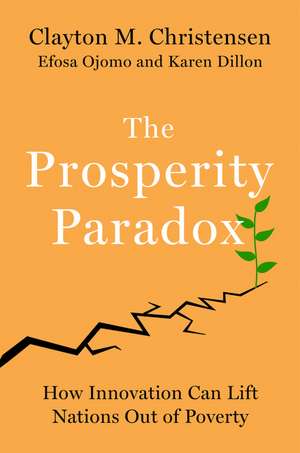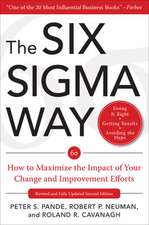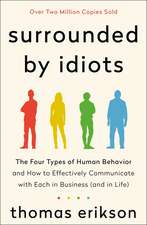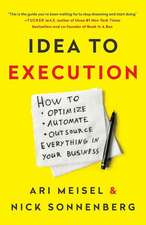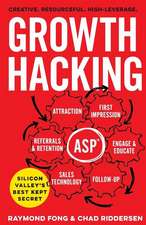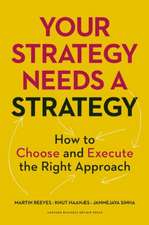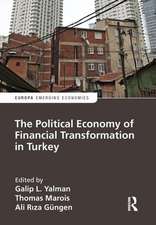The Prosperity Paradox: How Innovation Can Lift Nations Out of Poverty
Autor Clayton M. Christensen, Efosa Ojomo, Karen Dillonen Limba Engleză Hardback – 14 ian 2019
Global poverty is one of the world’s most vexing problems. For decades, we’ve assumed smart, well-intentioned people will eventually be able to change the economic trajectory of poor countries. From education to healthcare, infrastructure to eradicating corruption, too many solutions rely on trial and error. Essentially, the plan is often to identify areas that need help, flood them with resources, and hope to see change over time.
But hope is not an effective strategy.
Clayton M. Christensen and his co-authors reveal a paradox at the heart of our approach to solving poverty. While noble, our current solutions are not producing consistent results, and in some cases, have exacerbated the problem. At least twenty countries that have received billions of dollars’ worth of aid are poorer now.
Applying the rigorous and theory-driven analysis he is known for, Christensen suggests a better way. The right kind of innovation not only builds companies—but also builds countries.The Prosperity Paradoxidentifies the limits of common economic development models, which tend to be top-down efforts, and offers a new framework for economic growth based on entrepreneurship and market-creating innovation. Christensen, Ojomo, and Dillon use successful examples from America’s own economic development, including Ford, Eastman Kodak, and Singer Sewing Machines, and shows how similar models have worked in other regions such as Japan, South Korea, Nigeria, Rwanda, India, Argentina, and Mexico.
The ideas in this book will help companies desperate for real, long-term growth see actual, sustainable progress where they’ve failed before. ButThe Prosperity Paradoxis more than a business book; it is a call to action for anyone who wants a fresh take for making the world a better and more prosperous place.
Preț: 127.76 lei
Nou
24.45€ • 25.43$ • 20.18£
Carte disponibilă
Livrare economică 22 martie-05 aprilie
Livrare express 08-14 martie pentru 30.55 lei
Specificații
ISBN-10: 0062851829
Pagini: 368
Dimensiuni: 152 x 229 x 30 mm
Greutate: 0.5 kg
Editura: HarperCollins Publishers
Colecția HarperBusiness
Textul de pe ultima copertă
Resolving the Paradox
Starving children on street corners. Slums without adequate clean water and sanitation. Hopeless prospects for employment amid a growing youth population. Most of us are moved by the painful signs of poverty we see in poor countries all around the world. Though some progress has been made, upwards of 750 million people still live in extreme poverty, surviving on less than $1.90 a day. We all want to help. But what might seem to be the most obvious solution to these problems—directly assisting poor countries by investing to fix these visible signs of poverty—has not been as successful as many of us would like. You only have to look at the billions of dollars that have been channeled to these problems over the years with relatively slow progress to conclude that something is not quite right. With these efforts, we may be easing poverty for some—but we’re not moving the needle enough long term.
What if we considered this problem through a different lens? What if, instead of trying to fix the visible signs of poverty, we focused instead on creating lasting prosperity? This may require a counterintuitive approach to economic development, but one that will cause you to see opportunities where you might least expect them. We wrote this book to celebrate the role innovation can play, even in the most difficult of circumstances, in creating and sustaining prosperity even in some of the most desperate parts of the world. By supporting and investing in market-creating innovations, we inadvertently engage in nation building.
Recenzii
Descriere
Clayton M. Christensen, the author of such business classics as The Innovator’s Dilemma and the New York Times bestseller How Will You Measure Your Life, and co-authors Efosa Ojomo and Karen Dillon reveal why so many investments in economic development fail to generate sustainable prosperity, and offers a groundbreaking solution for true and lasting change.
Global poverty is one of the world’s most vexing problems. For decades, we’ve assumed smart, well-intentioned people will eventually be able to change the economic trajectory of poor countries. From education to healthcare, infrastructure to eradicating corruption, too many solutions rely on trial and error. Essentially, the plan is often to identify areas that need help, flood them with resources, and hope to see change over time.
But hope is not an effective strategy.
Clayton M. Christensen and his co-authors reveal a paradox at the heart of our approach to solving poverty. While noble, our current solutions are not producing consistent results, and in some cases, have exacerbated the problem. At least twenty countries that have received billions of dollars’ worth of aid are poorer now.
Applying the rigorous and theory-driven analysis he is known for, Christensen suggests a better way. The right kind of innovation not only builds companies—but also builds countries. The Prosperity Paradox identifies the limits of common economic development models, which tend to be top-down efforts, and offers a new framework for economic growth based on entrepreneurship and market-creating innovation. Christensen, Ojomo, and Dillon use successful examples from America’s own economic development, including Ford, Eastman Kodak, and Singer Sewing Machines, and shows how similar models have worked in other regions such as Japan, South Korea, Nigeria, Rwanda, India, Argentina, and Mexico.
The ideas in this book will help companies desperate for real, long-term growth see actual, sustainable progress where they’ve failed before. But The Prosperity Paradox is more than a business book; it is a call to action for anyone who wants a fresh take for making the world a better and more prosperous place.
Notă biografică
CLAYTON M. CHRISTENSEN (1952?2020) was the Kim B. Clark Professor at Harvard Business School, the author of nine books, a five-time recipient of the McKinsey Award for Harvard Business Review's best article, and the cofounder of four companies, including the innovation consulting firm Innosight. In 2011 and 2013 he was named the world's most influential business thinker in a biennial ranking conducted by Thinkers50.
